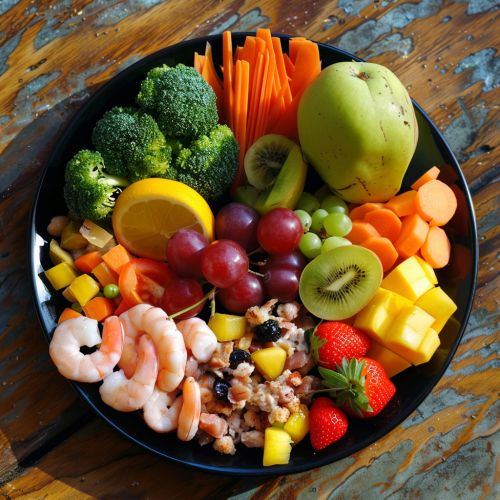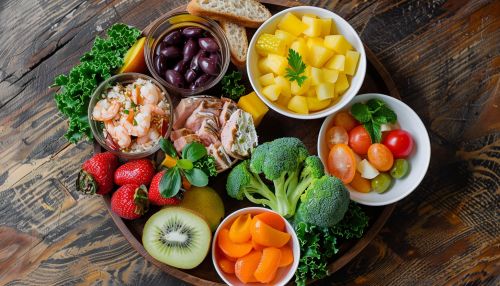Diet (nutrition)
Introduction
Diet, in terms of nutrition, refers to the intake of food, considered in relation to the body’s dietary needs. The right nutrition is a balanced diet that helps the body to function correctly. It involves ingestion, absorption, assimilation, biosynthesis, catabolism, and excretion.
Understanding Diet
The diet of an organism is what it eats, which is largely determined by the availability and palatability of foods. For humans, a healthy diet includes preparation of food and storage methods that preserve nutrients from oxidation, heat or leaching, and that reduces risk of foodborne illnesses.
Components of Diet
A healthy diet includes a variety of different foods packed with nutrients. These include proteins, carbohydrates, fats, water, vitamins, and minerals.
Proteins
Proteins are essential nutrients for the human body. They are one of the building blocks of body tissue and can also serve as a fuel source.
Carbohydrates
Carbohydrates are the body’s main source of energy. The digestive system changes carbohydrates into glucose (blood sugar), which the body uses for energy for the cells, tissues, and organs.
Fats
Fats are a type of nutrient that you get from your diet. It is essential to eat some fats, though it is also harmful to eat too many.
Water
Water is needed in great quantities as it is lost through perspiration, urination and bowel movements. It is replenished in the food and drink that is consumed.
Vitamins and Minerals
Vitamins and minerals are considered essential nutrients because they perform hundreds of roles in the body.
Balanced Diet
A balanced diet is a diet that gives your body the nutrients to function correctly. It is not a diet but a way of eating. A balanced diet means consuming from all the different food groups in the right quantities.
Diet and Health
A healthy diet may help to prevent certain long-term (chronic) diseases such as heart disease, stroke and diabetes. It may also help to reduce your risk of developing some cancers and help you to keep a healthy weight.
Dietary Guidelines
There are several sets of guidelines available to help you plan your balanced diet. They include: The Dietary Guidelines for Americans, The U.S. Department of Health and Human Services, The American Heart Association, The American Institute for Cancer Research and others.
Special Diets
Some people follow a diet to gain weight (usually in the form of muscle). Diets can also be used to maintain a stable body weight and improve health. Some people follow diets to lose weight, while others follow diets to gain weight (usually in the form of muscle).
See Also


